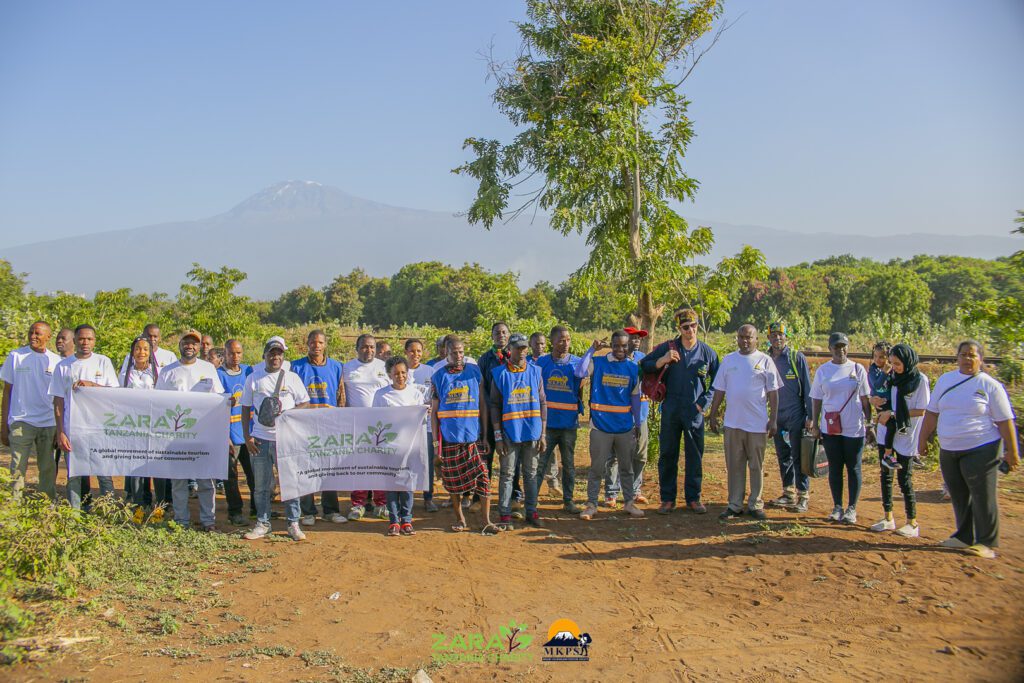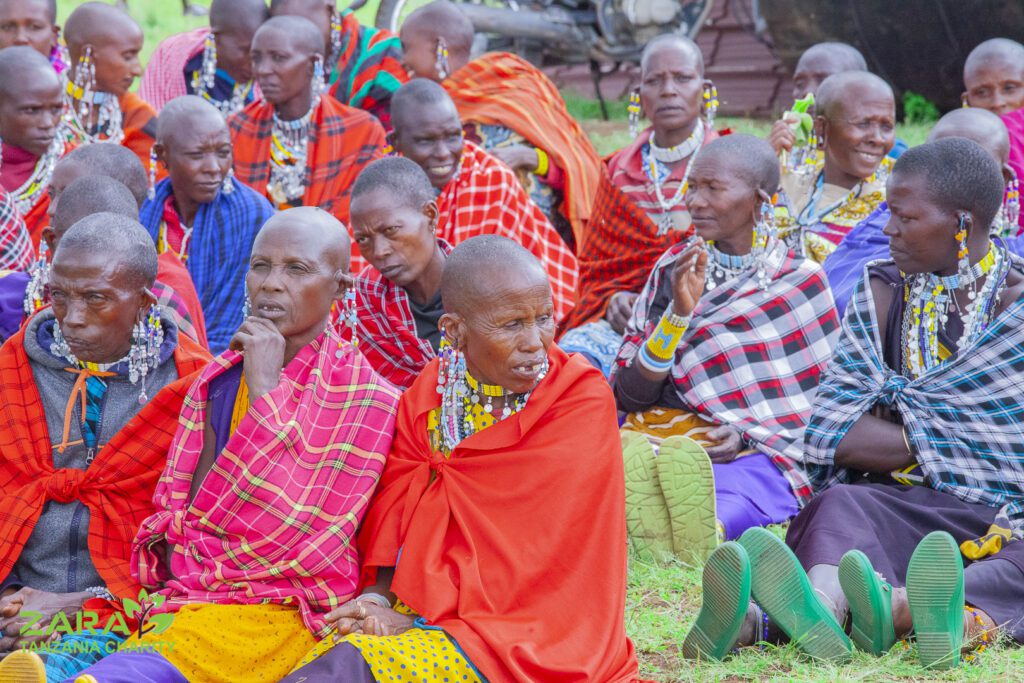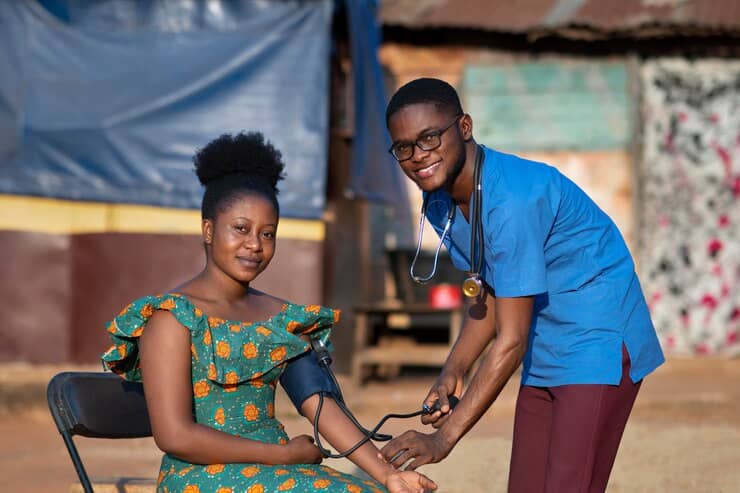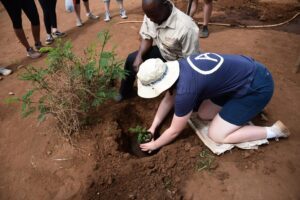Community Health Projects: Improving Healthcare Access in Rural Tanzania
Rural Tanzania faces significant barriers to healthcare, from limited medical facilities to a shortage of
trained professionals. Zara Charity is transforming this landscape through innovative community health
projects in Tanzania. These initiatives deliver critical medical services and empower communities with
health education, fostering sustainable change. This document explores Zara Charity’s efforts to improve
rural healthcare, opportunities for volunteering, and ways individuals can support these vital programs.


Key Takeaways
Community health projects are essential for enhancing healthcare access in rural Tanzania. Zara Charity
leads the charge by providing medical services and education to underserved communities. Volunteering
with organizations like Zara Charity offers a meaningful way to contribute to rural healthcare. Health
education is a cornerstone of these initiatives, empowering locals to manage their well-being. Despite
progress, rural Tanzania continues to grapple with significant healthcare challenges.
The Healthcare Crisis in Rural Tanzania
Rural Tanzania faces a profound healthcare crisis that impacts millions of lives. Limited infrastructure, including underdeveloped medical facilities and poor transportation networks, restricts access to
care. A severe shortage of healthcare workers, such as doctors and nurses, exacerbates the issue, as
many professionals avoid rural postings due to challenging conditions and limited career opportunities.
Vulnerable populations, particularly women, children, the elderly, and those with disabilities, bear the
brunt of these disparities. For instance, inadequate maternal and child health services contribute to high
mortality rates, while the elderly and disabled struggle with a lack of specialized care and transportation barriers. Addressing this crisis requires targeted, sustainable solutions, and Zara Charity is at the
forefront of these efforts.
Understanding Community Health Projects
Community health projects in Tanzania are designed to bridge healthcare gaps in rural areas by delivering
services directly to communities. These initiatives adopt a community-based approach, involving locals in
planning and implementation to ensure projects meet specific needs and remain sustainable. Integration
with existing health systems, through collaboration with local authorities, enhances their effectiveness.
Sustainable models, such as training local health workers and transferring healthcare knowledge, empower
communities to maintain progress independently. Zara Charity’s projects exemplify these principles,
focusing on long-term impact and community empowerment.
Zara Charity’s Role in Tanzania’s Healthcare
Founded in 2009, Zara Charity is a leading nonprofit dedicated to improving rural healthcare in Tanzania.
Its mission is to provide quality healthcare to underserved communities, with a vision of achieving
universal health coverage. Guided by values of compassion, integrity, and community engagement,
Zara Charity has expanded its reach through mobile clinics, health education programs, and maternal
health services. For example, their mobile clinics serve over 500 patients per project in remote villages,
while health education initiatives have reached thousands with critical knowledge on disease prevention.
By partnering with local communities, Zara Charity ensures its programs are culturally relevant and
sustainable.
Rural Healthcare Improvement Strategies
Zara Charity employs innovative strategies to enhance healthcare access in rural Tanzania. Mobile
clinics are a cornerstone, bringing medical services to remote areas lacking permanent facilities. These
clinics provide general consultations, vaccinations, and maternal care, significantly increasing access
for communities. Preventive care and education are equally vital, with campaigns targeting diseases
like malaria, HIV/AIDS, and waterborne illnesses through mosquito net distribution and educational
materials. Health literacy workshops empower locals to adopt healthy practices. Maternal and child
health services, including prenatal and postnatal care, have reduced maternal mortality rates from 450
to 200 per 100,000 and infant mortality from 60 to 30 per 1,000 live births, demonstrating tangible
impact.
Building Local Healthcare Capacity
Empowering communities through capacity building is central to Zara Charity’s approach. Training
community health workers equips locals with skills in first aid, maternal health, and disease prevention,
creating a network of frontline providers. Ongoing mentorship ensures these workers remain effective.
Additionally, Zara Charity empowers local medical professionals through advanced training in areas like
surgery and pediatrics, as well as leadership development to foster ownership of healthcare initiatives.
These efforts build a self-reliant healthcare system that continues to serve communities long after external
support ends.
Technology in Rural Healthcare
Technology plays a transformative role in Zara Charity’s healthcare delivery. Telemedicine enables remote consultations, connecting patients with doctors and specialists without the need for travel. Mobile
health applications support patient monitoring and provide educational resources on disease management. Data collection and analysis track health outcomes, allowing Zara Charity to design evidencebased interventions tailored to community needs. These innovations enhance access and improve health
outcomes in rural Tanzania.
Volunteer Opportunities with Zara Charity
Volunteering with Zara Charity offers a rewarding way to impact rural healthcare in Tanzania. Opportunities include medical placements for doctors and nurses to work in clinics and public health initiatives
focused on education and preventive care. Volunteers need relevant qualifications, such as medical or
public health credentials, and personal attributes like cultural sensitivity and adaptability. The application process involves submitting a form via Zara Charity’s website, followed by background checks and
orientation to prepare for placements. Both short-term (weeks to months) and long-term opportunities
are available, catering to diverse schedules and skill sets.
Success Stories
Zara Charity’s community health projects have transformed rural Tanzania. In one village, a comprehensive project involving a mobile clinic, health worker training, and preventive care education reduced
maternal mortality by over 50% and increased healthcare access from 30% to 80% of the population. A
patient shared, “The mobile clinic saved my life during pregnancy, providing care I couldn’t access before.” A trained health worker added, “Zara Charity’s training gave me the skills to serve my community confidently.” These stories highlight the sustainable changes driven by Zara Charity’s community-focused approach.
Challenges and Solutions
Implementing community health projects in rural Tanzania presents challenges, including limited funding
and cultural barriers. Financial constraints restrict staffing and equipment, while language and cultural
differences can hinder service adoption. Zara Charity addresses these through innovative solutions,
such as income-generating activities to fund projects and training local health workers who understand
community dynamics. Community ownership models further ensure sustainability by empowering locals
to lead initiatives, creating lasting impact.
How Americans Can Support
Americans can make a significant difference in rural Tanzania’s healthcare. Financial donations to Zara
Charity fund mobile clinics and training programs, while medical supply donations provide essential
equipment like medications and diagnostic tools. Volunteering offers hands-on impact, with short-term
and long-term opportunities available through Zara Charity. Raising awareness through social media
campaigns or organizing community fundraising events can amplify support for rural healthcare initiatives. Every contribution, big or small, helps Zara Charity advance its mission.
Zara Charity’s community health projects in Tanzania are revolutionizing rural healthcare by addressing
infrastructure gaps, training local workers, and leveraging technology. From mobile clinics to health
education, these initiatives empower communities to achieve better health outcomes. Continued support
through donations, volunteering, and advocacy is vital to sustain this progress. By contributing to Zara
Charity, individuals can help build a healthier, more prosperous future for rural Tanzania.
FAQ
What are community health projects in Tanzania? Community health projects, led by organizations like Zara Charity, improve healthcare access in rural areas through mobile clinics, health education,
and training programs.
What challenges does rural Tanzania face in healthcare? Limited infrastructure, healthcare
worker shortages, and disparities disproportionately affect women, children, the elderly, and disabled
individuals.
How does Zara Charity improve healthcare? Zara Charity provides mobile clinics, health education, and training, enhancing access and outcomes in rural communities.
What volunteer opportunities exist with Zara Charity? Medical placements and public health
initiatives are available for qualified volunteers, with short-term and long-term options.
How can Americans support Zara Charity? Donate funds or supplies, volunteer, or raise awareness
through social media and fundraising events.
How does technology aid rural healthcare? Telemedicine, mobile apps, and data analysis improve
access, monitoring, and evidence-based interventions.
What challenges do community health projects face? Funding and cultural barriers are addressed
through income-generating activities and local training.




